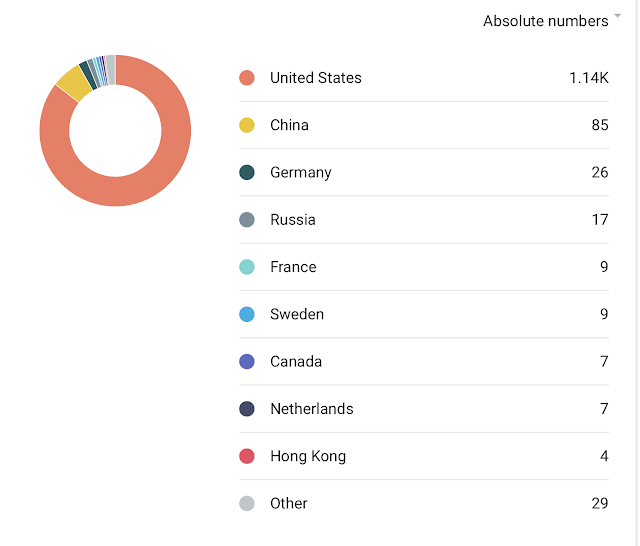☞ Bonus: List of links I use
I originally wrote this for Daily Kos Jan. 2, 2021 four days before Trump incited a mob to try to overturn the election.
 |
| Recent photo of Auschwitz |
By Hal Brown
Since Donald Trump began to run for president the number of articles and books describing Donald Trump’s mental impairments and how dangerous a “case” he was has become industrial in scale. Once he is out of office the psychoanalysis of Trump becomes mostly irrelevant and will be fodder for historians and political scientists.
The presidency of Trump has exposed critical dangerous truths about our society. One is how mentally sick a large segment of our population is. Many people are paranoid and delusional, the members of QAnon are just the most visible. Lin Wood (who is too crazy even for the GOP), who seems to believe he is the Second Coming of Christ, is an extreme example of someone who ought to be committed for treatment. The deep bigotry of millions of Americans including the racist rot in parts of the law enforcement community has been exposed. The appalling ignorance and gullibility of millions of Americans has demonstrated that our primary and secondary education systems have failed at their jobs of teaching young people to be curious and to think critically. These are just examples.
This is not what I want to address here. What I want to focus on is that a phenomenon like Trumpism never gains a foothold in the United States again.
We need to understand how those people who aren’t paranoid and delusional, but those who harbor racist beliefs, those who are afraid of those they consider to be a threat to their dominance, and importantly also those we can call simply ordinary people, can be indifferent to the suffering of others, and sometimes be influenced and empowered to take violent action by a Machiavellian autocrat like Trump. We have to use that knowledge to prevent it from happening again.
The phenomenon of what happened to American society with Trump moving us towards being a fascist country has been addressed in numerous articles and several books published in the past four years.
The subject is hardly new. Historians and political theorists like Hannah Arendt, who is considered one of the most important 20th Century political thinkers, warned us of how countries succumb to fascism and other forms of totalitarianism. The very title of one of her most famous books Eichmann in Jerusalem: A Report on the Banality of Evil suggests it could have been written not about Trump but about many members of what has come to be referred to as a cult. (Read: What did Hannah Arendt really mean by the banality of evil? which describes why her book about Eichmann is controversial.)
Another book conveys a dire warning about what we have to fear in the future from members of the Trump cult. The book known more by the title than the name of the author, Daniel Goldhagen, is Hitler's Willing Executioners: Ordinary Germans and the Holocaust.
The titles of these two books added together tell us that 1) evil people can be banal and 2) ordinary people can execute the evil dictates of their leaders or turn a blind eye to them.
The slogan or phrase “never again” has been widely used to refer to The Holocaust. The sentiment is extremely important even though since it has been universally applied there have been horrific genocides since the end of World War II.
Another important phase or aphorism comes from George Santayana which is used in one or another form:
Those who cannot remember the past are condemned to repeat it.
Progress, far from consisting in change, depends on retentiveness. When change is absolute there remains no being to improve and no direction is set for possible improvement: and when experience is not retained, as among savages, infancy is perpetual. Those who cannot remember the past are condemned to repeat it.
- This famous statement has produced many paraphrases and variants:
- Those who cannot learn from history are doomed to repeat it.
- Those who do not remember their past are condemned to repeat their mistakes.
- Those who do not read history are doomed to repeat it.
- Those who fail to learn from the mistakes of their predecessors are destined to repeat them.
- Those who do not know history's mistakes are doomed to repeat them.
Some countries have managed to correct the wrongs of the past without bloody revolutions including of course Germany, and at another level, South Africa. In another category, colonial powers like England not only eliminated their ruling aristocracy but gave their colonies self-rule. An example of a country that remedied the wrongs of their aristocracy with a bloody revolution is Russia and look what they ended up replacing it with. They demonstrate that not remembering the wrongs of the past isn’t enough. A country has to replace the old ways with something better.
There is a consensus among Democrats and anti-Trump Republicans that had Trump been reelected our county would have been in grave danger of becoming an authoritarian and totalitarian state. See, for example: Trump Is an Authoritarian. So Are Millions of Americans (subtitled “It’s not how we think of our fellow-citizens, but no matter who wins in November, the impulse will be very much alive in the country. What do they want?”) written by an expert on fascism from Politico before the election.
The matter of prosecution of those involved in crimes up to and including Donald Trump is a topic for another discussion. It is certainly related to the recovery from our national sickness. Even if Trump and his enablers manage to live like royalty in the future and are immune from having their transgressions weighed fairly on the Scales of Justice and aren’t punished appropriately, this isn’t all that important in the greater scheme of things.
Sen. Sheldon Whitehouse has some excellent ideas about a forming a kind of truth commission: Why we can't just "move on": We need accountability for Donald Trump's misdeeds. He writes mostly about climate change denial but his points go further:
To address corruption within agencies of government, the oversight powers of Congress are particularly well adapted. A special committee of Congress, with its own staff and robust investigative powers, would be most effective. A government that serves the people must have the strength to resist special interest influence; members of Congress would be particularly adept at restoring the resilience of government against such influence.
A special committee provides a single repository for evidence and testimony, and could without hindrance investigate schemes that crossed agency and committee jurisdictions. The committee's findings and recommendations would go to the public, the administration and the regular standing committees of Congress; case referrals could go to inspectors general, licensing bodies or the Department of Justice, as needed. With an investigative committee on the job, regular standing committees would be free to pursue long-overdue legislative efforts without the burden of this urgent but additional work.
……………
Whether the goal at the end of the day is truth and reconciliation, procedural and institutional reform, or justice and accountability for misdeeds, investigations will be essential. Separate investigative bodies assigned to these tasks will leave regular agencies and committees free to begin the urgent business of governing, and move us forward.
I think forming such a committee is a good idea.
I also think two things are very important. Congress needs to pass enforceable laws with meaningful consequences for breaking them about things including but not limited to immigration, emoluments, White House appointments of unqualified people to various departments like Defense, the limits of executive authority, campaign finance, whistle blower protection, fair elections (voter suppression), and police reform. Equally important is educating the public about how closely the country came to no longer being a democracy. If accomplished we stand a chance of assuring that this never happens again.











































